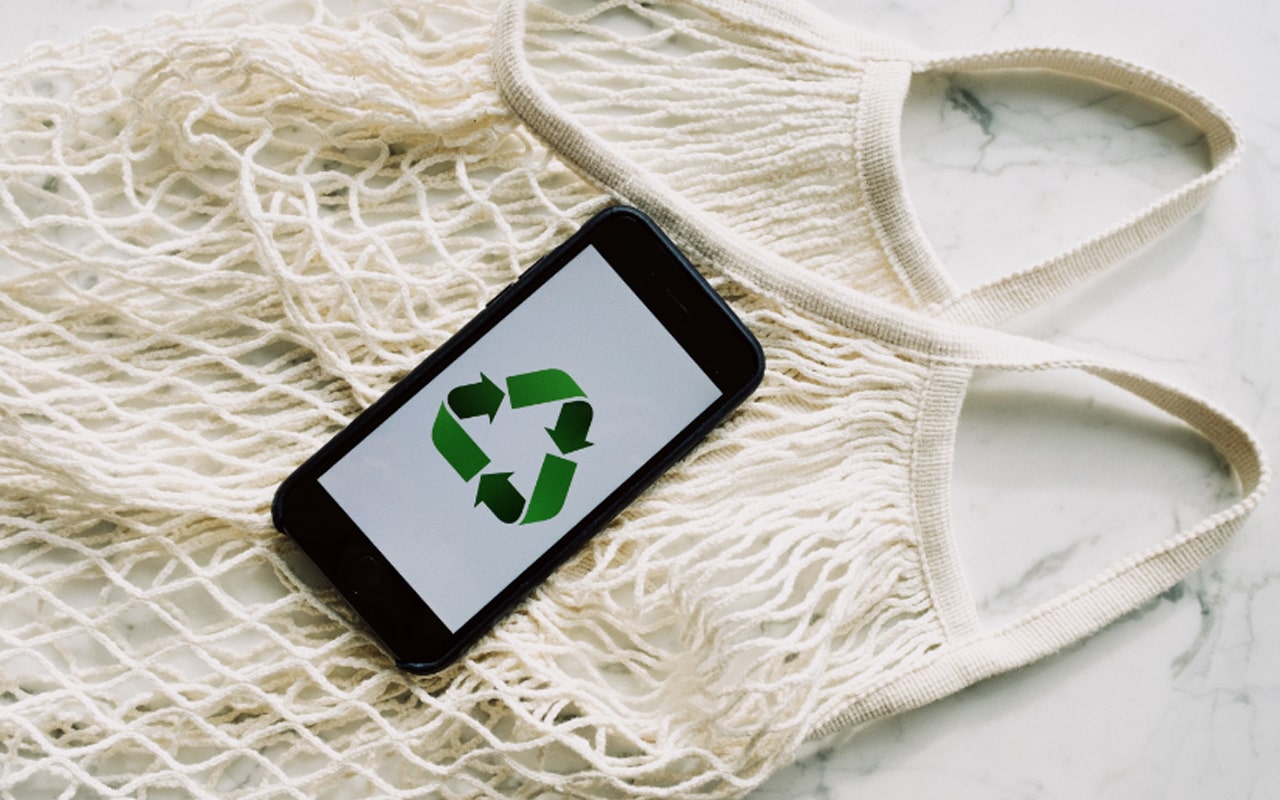Less waste in the workplace

Less means more today. The less we use, the more we do for nature. Reducing emissions or preventing the increase of global temperature is associated with the requirements imposed on corporations, and ecology in office buildings is associated with high standards that must be met by developers. Meanwhile, office workers can also take care of the environment by implementing ’less waste’ principles.
Waste management is currently one of the greatest environmental challenges in the world, in Poland as well. According to publicly available indicators and reports, millions of tons of waste a year end up in rivers and seas and about 100,000 fish, cetaceans, turtles and birds die from ingesting or suffocating from plastic residues . According to UNESCO, the increase in water consumption in the world is continuously growing by about 1 percent annually, while the WHO reports that the lack of access to drinking water contributes to approximately 2 million deaths a year worldwide . Reducing the consumption of raw materials, together with skillful recycling can significantly reduce these numbers.
Recycling above all
Amendment to the Act on maintaining cleanliness and order in municipalities (Journal of Laws of 2019, item 1579) in 2020 imposed the obligation to separate waste also on owners of uninhabited buildings, i.e. office buildings, shopping malls, service points, institutions or schools. Companies that have so far preferred to pay a slightly higher fee and have only one container for mixed waste on their premises , since August 2020 have to add additional ones for: paper, plastic, glass and biodegradable waste, and most importantly – challenge their tenants and employees to sort waste according into fractions. In addition to dedicated recycling bins, the trash bins located under each desk need to be eliminated. Such bin is a no 1 enemy of recycling. Any kind of waste is thrown into it – from sheets of paper to food scraps. It is also possible to sort the bio fraction in the office, i.e. by having your own composter. This is a small-size odor-free container, and the compost created in the office can be used for potted plants nutrition.
Reducing plastic
Reducing plastic consumption in the office is another milestone towards caring for the environment. Above all, it’s worth giving up buying water in plastic bottles in favour of serving it in carafes.. Assuming an employee drink the recommended 1.5 liters of water a day, one can save up to 12 kg of plastic a year! It is worth emphasizing that drinking tap water is safe, it contains bioelements such as calcium and magnesium, and the amount of chlorine used in the disinfection process does not pose a threat to one’s health . The chlorine in the water can be removed by using filter jugs or water filters for faucets. The consumption of plastic can also be reduced by resigning from using disposable cutlery, cups, straws or stirrers in the office in favor of reusable ones or those made of bamboo. It is also worth paying attention to how take-out, often bought for work, is packaged.
Taking care of trees
The total production of paper in the sixteen countries associated with the European Confederation of Paper Industry (CEPI) in 2019 amounted to about 90 million tons. This level has been maintained for over 10 years. Meanwhile, the paper industry around the world has a long history of land deforestation accusations. Additionally to environmental benefits, limiting paper consumption in a company may also bring economic benefits. In addition to reducing the amount of unnecessary printouts, it is worth to stop sending invoices by traditional post, which not only reduces the consumption of paper and toner, but also minimizes the number of envelopes used and postage costs. What’s more – this contributes to the reduction of emissions as it does not require road transport. All offers, reports and presentations for contractors can also be sent via e-mail.
Giving objects a second life
Less waste is also about giving a second life to items that are broken, worn out or have become boring. Many companies are now moving away from replacing computer and electronic equipment every two years, and repairing faulty office equipment and furniture rather than throwing it away. This is not only to save money, but above all to reduce excessive consumption and the amount of waste. This may also be the case for smaller pieces of office equipment, such as toner for the printer, which can be refilled rather than thrown away. Many companies introduced trendy solution – exchange bins, where employees can leave things that they no longer use (books, decorative items, office items, gadgets) and share them with others.
We don’t need one perfect person, but many imperfect people to make a difference for the better. Meanwhile, caring for the environment is not a temporary trend but a necessity. That is why it is worth considering implementing less waste also in the work environment.
- Raport Deloitte “The price tag of plastic pollution An economic assessment of river plastic”, available at: https://www2.deloitte.com/content/dam/Deloitte/pl/Documents/Reports/deloitte-nl-strategy-analytics-and-ma-the-price-tag-of-plastic-pollution.pdf
- UN World Water Development Report 2020: Water and Climate Change https://unesdoc.unesco.org/ark:/48223/pf0000372876.locale=en
- https://www.prostozkranu.krakow.pl/



